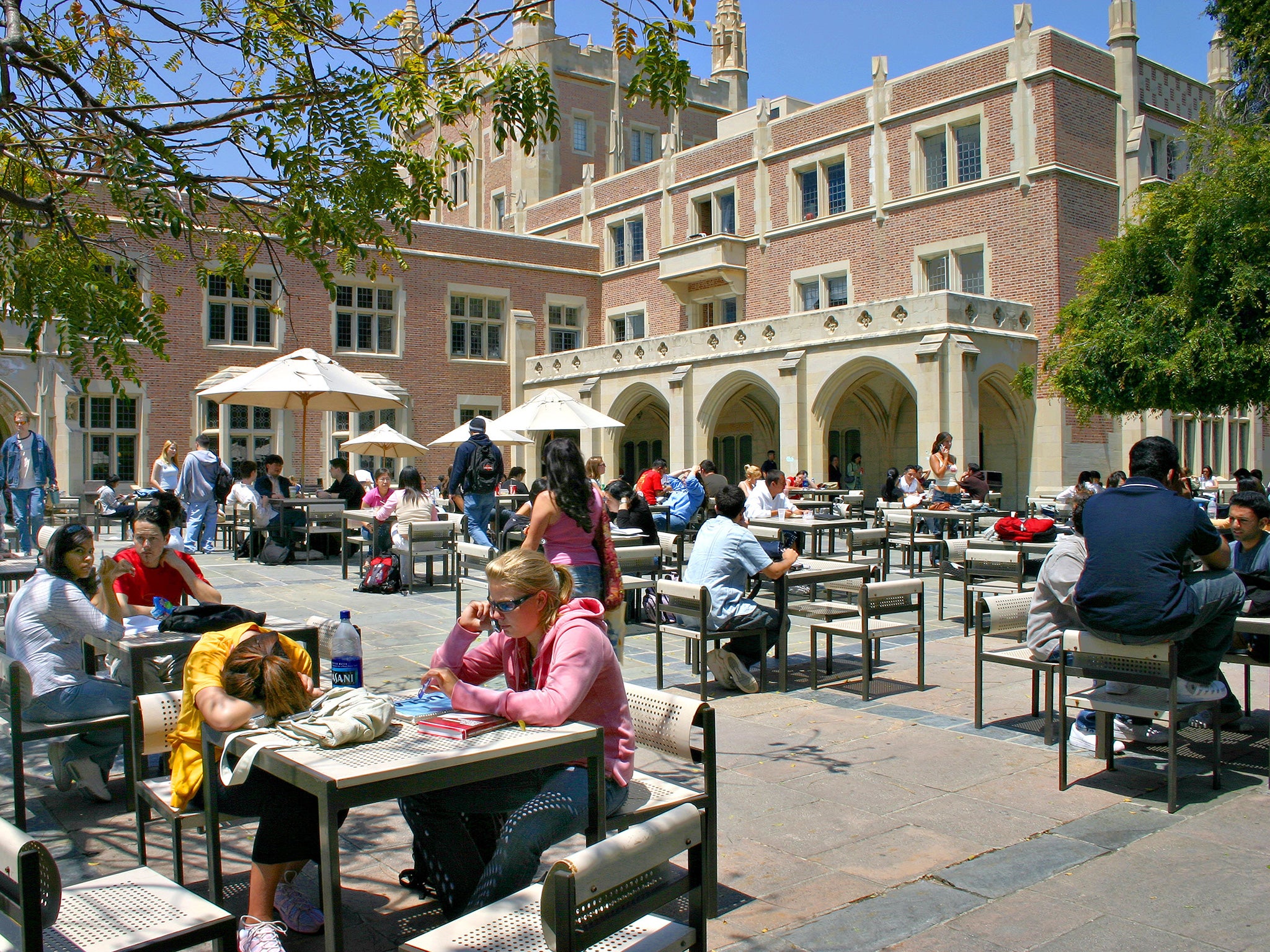Microaggression: Is asking someone which school they went to or what their parents do offensive?
On US campuses the new buzz-word is 'microaggression', and it even can apply to a seemingly innocent enquiry about someone's origins. Fred Barbash enters a verbal minefield

Larry Mantle, a radio host in California, was moderating a public discussion last month on the fraught subject of "microaggressions" – words, though uttered innocently by white people, that are said to deeply offend those who are less privileged – when he made a big mistake. Calling on the first questioner, he asked: "Where are you from?"
He was not being ironic. That's a standard question for talk-show hosts. But the audience froze in silence, briefly and uncomfortably, before breaking into a nervous laughter. Katrina, the questioner, explained. "People are laughing because of the question," she said.
The reason it might be considered offensive was explained on the very list of guidelines that was the subject of Mantle's radio discussion: a "tool" for recognising microaggressions provided by the University of California to be used in seminars to educate faculty members.
Asking someone of colour or any minority "Where are you from?" or "Where were you born?", the guidelines suggested, could send the message that "you are not a true American. You are a perpetual foreigner in your own country". The same for comments such as "You speak English very well" and "What are you? You're so interesting looking!"
Once kids were told that "words will never hurt me". Now, on some campuses, they and the faculty are being taught the opposite: innocently uttered words can and do hurt, and speech codes and guidelines about what not to say are all the rage.
The debate has been roiling campuses across California as well as places such as Oberlin, Wesleyan, Ithaca and Columbia for several years now, complete with "microaggression" blogs, reserved strictly for those who are not "privileged" – meaning white people – in which the offended call out the offenders, for any number of perceived microaggressions. And to critics, all this is petty – or worse, stifling – and, when supported by university administrations, very much an imposition on free speech.
Fighting microagressions "has become a cottage industry in academe", wrote Malcolm A Kline on a conservative website called Accuracy in Academia last week, pointing to, among other places, the Microaggressions Project site, where grievance is piled upon grievance, and I, Too Am Harvard. Meanwhile, Derald Wing Sue, a professor of psychology and education at Columbia, the best known scholar of microaggressions and the developer of the tool used at UC and elsewhere, remains a strong defender. He says he has no desire to "silence" anyone, and does not see it as an issue of suppressing free speech by whites but of encouraging minorities to voice their grievances.
Likewise, the backlash to the anti-microaggression movement has become a cottage industry, much of it focusing on examples from the guidelines, such as "I believe the most qualified person should get the job" and "America is the land of opportunity". (The latter phrase was said to be harmful because it advances the "myth of the meritocracy", deemed to send a message that "race or gender does not play a role in life successes".)
The most discussed and provocative dissection of microaggressions recently is a much broader critique published in the journal Comparative Sociology by Bradley Campbell, of California State University, and Jason Manning, of West Virginia University. In "Microaggression and Moral Cultures" they see the anti-microaggression movement as a "new species of social control", which when "present in high degrees" produces a "culture of victimhood".
It's very different than, they argue, earlier movements such as civil rights, because of its focus on otherwise unintentional slights – words alone, rather than concrete injustices, such as being denied the right to vote or sit at a lunch counter. And its motive is not so much to educate offenders but elevate the offended.
"I don't consider myself an opponent of this stuff," Campbell says. "But ... I worry when people get in trouble because they've said something people consider offensive." And "I worry when administrators feel like they have to do something about it."
But Professor Sue remains unrepentant. "Why are people of colour raising these issues?" he asks. "Not because they see themselves as victims", as Manning and Campbell suggest. "Microagressions have empowered them by giving them a language of expression. It allows them to say this is happening, and given the fact that it's happening, and doing all this harm, do they not have a right to say: 'This has to stop?'"
A version of this article was first published in The Washington Post
Join our commenting forum
Join thought-provoking conversations, follow other Independent readers and see their replies
Comments
Bookmark popover
Removed from bookmarks